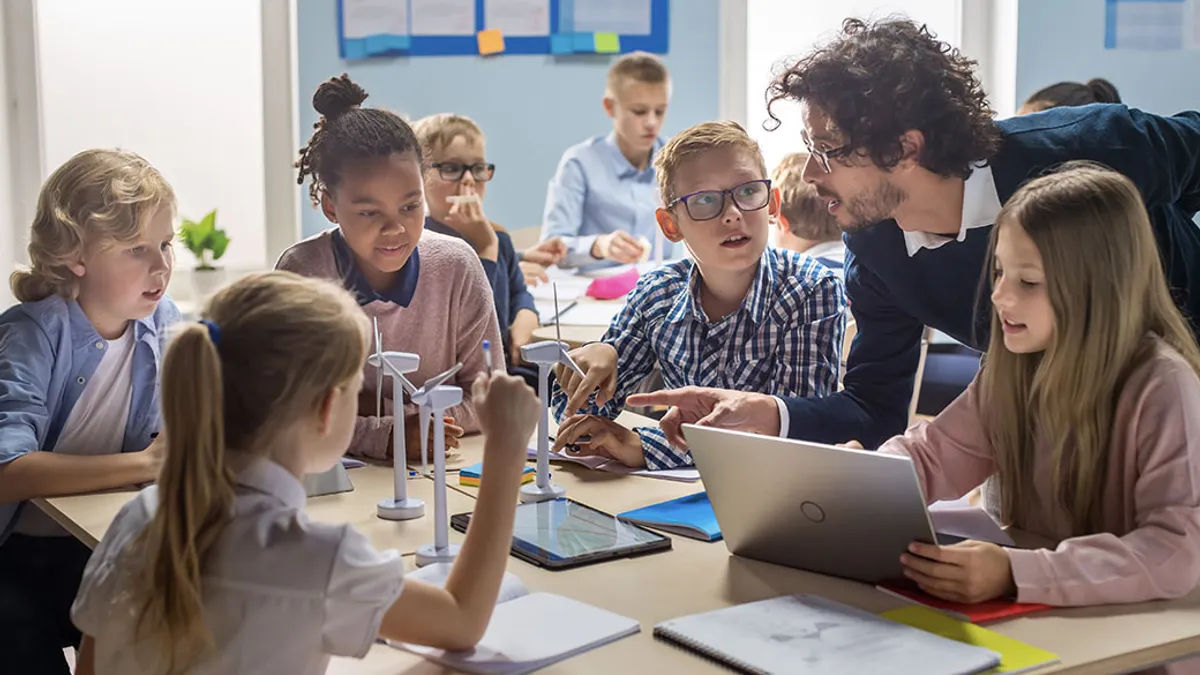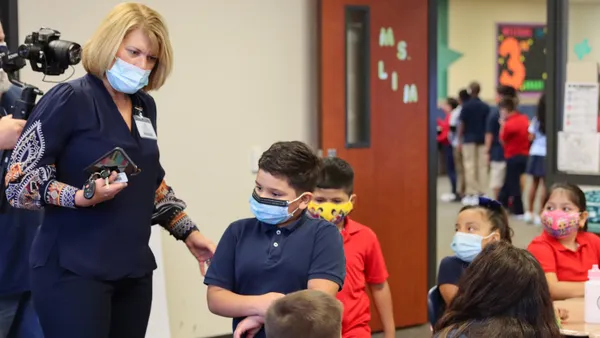ChatGPT, the generative artificial intelligence (AI) chatbot developed by OpenAI, has experienced rapid growth and widespread adoption since its initial release in 2022. Students, in particular, have gravitated toward generative AI tools like ChatGPT, as they can help write essays, solve problem sets, and even generate code.
Educators, on the other hand, have shared mixed reviews. While some view ChatGPT as a way to improve student engagement and reduce teacher workloads, others worry it can threaten academic integrity, spread misinformation, and even create a new digital divide in education as AI tools start monetizing. Both the excitement and panic around these tools seem equally warranted.
While there are many reasons to be cautious about generative AI, the truth is that it’s quickly becoming a fact of modern life. Banning it entirely within schools might be futile or even do a disservice to some students as such tools become normalized outside the K-12 context.
So, how should public education move forward? Some of the leading superintendents across the country weighed in on this as part of Paper’s Leadership Voices Series 2023.
Move toward application-based learning
Dr. Anthony Rossetti, superintendent of Missouri’s Webb City School District, offers an emerging perspective on the role of generative AI in education. He emphasizes that schools must stay relevant amid the rise of technology that can spit out a world of knowledge within seconds.
“When you think about ChatGPT and how content is going to be available to everybody, we've got to move toward application-based processes so that students can actually see the relevance of what they’re learning, go out and be part of the business community, and solve real-world problems,” he said in his interview for Leadership Voices 2023.
For Webb City School District, this shift involves a growing role of educators in guiding self-discovery and problem-solving. “The teacher is no longer just the vessel of knowledge,” according to Dr. Rossetti. Educators are equipping students not just to acquire information—but also to analyze and apply—knowledge across contexts.
This perspective on application-based learning mirrors a broader trend among school districts: engaging students with future readiness opportunities. “We find our students learn best with hands-on experiences and when there are real-world connections. I know when I grew up, I would always say, ‘Hey, when am I going to use this in real life?’” Dr. Monica Goldson, former chief executive officer of Maryland’s Prince George’s County Public Schools, reflected on the 2022-23 school year. “Our students have taught us that they want to learn differently. So there are ways that we can get to them through the use of technology and the world of work.”
For example, Prince George’s County Public Schools invites high school students to solve case challenges for Fortune 500 companies. Ultimately, such future readiness opportunities can allow students to navigate real-world contexts where things like researching on the internet, using calculators, or even using ChatGPT are not always prohibited.
Help students distinguish between reliable and questionable information
As generative AI gains popularity, schools must also focus on mitigating its negative consequences. Dr. Rossetti explained how critical it has become for students to be able to judge the validity of what they see online. “It's our role, I believe, to teach students what places to go for information and what places are probably not as reliable,” he said.
Regardless of whether or not students use AI tools within their classrooms, educators can emphasize media literacy and critical thinking skills. These efforts will better prepare students to analyze information from ChatGPT—and when encountering other AI-generated content on the internet.
ChatGPT is just one of many curveballs schools have had to deal with in the last couple of years. Conversations about the implications of generative AI for education are just beginning. As Dr. Calvin Watts, superintendent of Georgia’s Gwinnett County Public Schools, commented, “Innovation is a part of public education now. We’re not going to get the same results if we continue doing what we've done for the last 388 years, while our students and families come to us with very different needs and circumstances.”
Though the way forward is not fully clear, tracking how new technologies unfold in the real world can help inform how schools can prepare every student for success in school and beyond.
Note: Quotes have been lightly edited for length and clarity.
For more insights from superintendents on critical education topics including teacher retention, career readiness, and mental health, check out Paper’s Leadership Voices Series 2023










